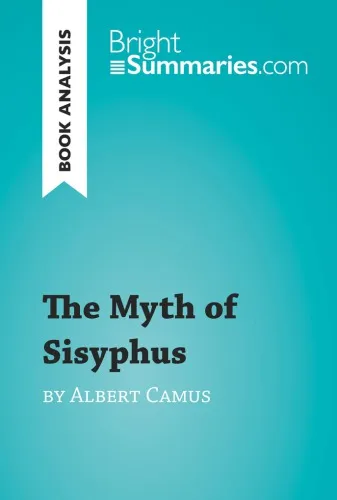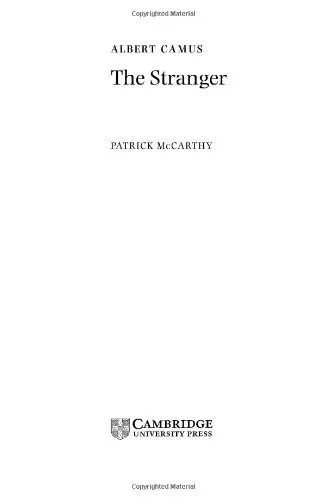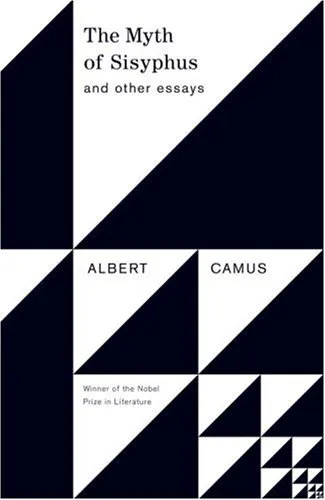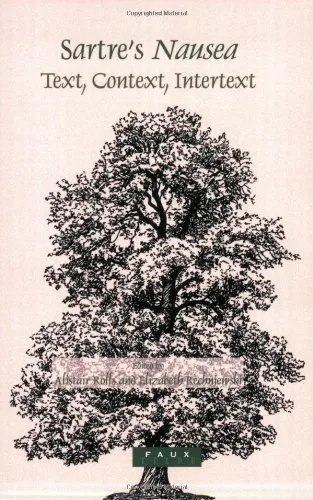Nausea
4.3
بر اساس نظر کاربران

شما میتونید سوالاتتون در باره کتاب رو از هوش مصنوعیش بعد از ورود بپرسید
هر دانلود یا پرسش از هوش مصنوعی 2 امتیاز لازم دارد، برای بدست آوردن امتیاز رایگان، به صفحه ی راهنمای امتیازات سر بزنید و یک سری کار ارزشمند انجام بدینکتاب های مرتبط:
معرفی کتاب 'Nausea'
کتاب 'Nausea' اثر ژان-پل سارتر، یک رمان فلسفی است که به بررسی موضوعات پیچیدهای مانند بیگانگی، معنی جویی و ماهیت وجود انسان میپردازد. از آنجایی که این اثر یکی از مهمترین آثار ادبیات اگزیستانسیالیستی است، اهمیت و تاثیر آن بر اندیشه قرن بیستم و به ویژه بر روی فلسفه اگزیستانسیالیسم غیرقابل انکار است.
خلاصه دقیق کتاب
رمان 'Nausea' از دیدگاه شخصیت اصلی آن، آنتوان روکنتین، روایت میشود. آنتوان، یک مورخ و نویسنده، در شهر کوچکی به نام بوویل زندگی میکند و به تدریج با احساس عمیقی از دل زدگی و بیگانگی مواجه میشود که او را وادار به پرسش در باره معنی و هدف زندگی میکند. او که دچار 'Nausea' یا همان تهوع وجودی شده است، تلاش میکند تا با فهمیدن واقعیت و ماهیت وجود، راهی برای غلبه بر این بحران بیابد. در خلال داستان، آنتوان با محیط اطرافش، افراد مختلف و حتی خودش در جدالی دائمی به سر میبرد؛ جدال با معنای زندگی، گذر زمان و مفهوم آزادی.
نتایج کلیدی
کتاب 'Nausea' با در نظر گرفتن چالشها و دغدغههای اگزیستانسیالیستی، نمایش دهنده این است که انسانها چگونه میتوانند با احساس بیاهمیتی و پوچگرایی مواجه شوند. در این کتاب، سارتر به بررسی 'تهوع' به عنوان یک حالت ذهنی میپردازد که فرد را وادار میکند تا با حقیقت تلخ و سخت زندگی روبرو شود. کلید این کتاب در این است که انسان میتواند با پذیرش واقعیت وجودی خود، به آزادی و توانایی انتخاب دست یابد.
جملات معروف از کتاب
- "وجود انسان قبل از ذات او است." - این جمله معروف، اساس تفکر سارتر و فلسفه اگزیستانسیالیسم را تشکیل میدهد.
- "جهان به طرزی نامفهوم است."
- "آزادی بار عظیمی است."
چرا این کتاب مهم است؟
'Nausea' نه تنها به عنوان یک متن ادبی برتر شناخته میشود بلکه به عنوان یک اثر فلسفی که به پرسشهای اساسی درباره وجود و ماهیت انسان میپردازد، اهمیت دارد. این کتاب به اندیشه اگزیستانسیالیستی مردم را نه تنها در زمینه فلسفه بلکه در زمینههای مختلف فرهنگی، هنری و حتی سیاسی تاثیرگذار میباشد. به ویژه بعد از انتشار این کتاب، تاثیرات عمیقی بر جنبشهای فکری پس از جنگ جهانی دوم گذاشت.
Introduction to Jean-Paul Sartre's "Nausea"
Jean-Paul Sartre's "Nausea" is a seminal work of existentialist literature, exploring the profound themes of existence, meaning, and the human condition. Through this novel, Sartre delves deep into the mind of an individual grappling with the visceral experience of existential angst and the absurdity of life.
Detailed Summary of the Book
Published in 1938, "Nausea" is presented as the fictional diary of Antoine Roquentin, a solitary and introspective historian living in the French town of Bouville. As Roquentin tirelessly works on research about an 18th-century politician, he finds himself increasingly alienated from the world around him. The narrative unfolds through his observations, contemplations, and intense introspections captured in his diary entries. Throughout the novel, Roquentin experiences a creeping realization of the absurdity and contingency of existence, referred to as "nausea." This overpowering sensation causes him to confront the inherent meaninglessness of the objects and people around him, leading to existential dread. However, Roquentin's journey is not merely one of despair. He eventually reaches a form of acceptance, recognizing that existence precedes essence, and begins to see the potential for personal freedom and authentic living, even within a seemingly indifferent universe.
Key Takeaways
Through "Nausea," Sartre articulates the existentialist belief that essence does not precede existence. Humans are not born with a predefined purpose; rather, they must create their own meaning in a chaotic and indifferent world. This freedom is both liberating and deeply daunting, as it places the responsibility of meaning-making squarely on the individual. "Nausea" also highlights the experience of existential angst—the disorientation and confusion that arise when one confronts the void of inherent meaning. Additionally, Sartre's novel presents a critique of bourgeois society and conventional values, reflecting his broader philosophical and political views. These themes challenge readers to confront their own experiences of existence and to ponder their personal authenticity and freedom.
Famous Quotes from the Book
"I exist, that's all. And that trouble is so vague, so metaphysical that I am ashamed of it."
"The world of explanations and reasons is not the world of existence."
"Every existing thing is born without reason, prolongs itself out of weakness, and dies by chance."
"I felt myself full of future. But what future?"
Why This Book Matters
"Nausea" is a pivotal work that not only set the stage for Sartre's later philosophical writings but also profoundly influenced the existentialist movement as a whole. It challenges readers to reevaluate their relationship with the world and to embrace the inherent freedom that comes with existence. The novel's introspective style and philosophical depth offer profound insights into the nature of reality, free will, and the search for meaning, resonating with individuals across diverse contexts and eras. Its exploration of the personal, philosophical, and societal implications of existentialism continues to inspire thinkers, writers, and readers worldwide. As such, "Nausea" remains a critical work for anyone seeking to understand the complexities of human existence and the existential philosophy that underpins it.
دانلود رایگان مستقیم
شما میتونید سوالاتتون در باره کتاب رو از هوش مصنوعیش بعد از ورود بپرسید
دسترسی به کتابها از طریق پلتفرمهای قانونی و کتابخانههای عمومی نه تنها از حقوق نویسندگان و ناشران حمایت میکند، بلکه به پایداری فرهنگ کتابخوانی نیز کمک میرساند. پیش از دانلود، لحظهای به بررسی این گزینهها فکر کنید.
این کتاب رو در پلتفرم های دیگه ببینید
WorldCat به شما کمک میکنه تا کتاب ها رو در کتابخانه های سراسر دنیا پیدا کنید
امتیازها، نظرات تخصصی و صحبت ها درباره کتاب را در Goodreads ببینید
کتابهای کمیاب یا دست دوم را در AbeBooks پیدا کنید و بخرید
1581
بازدید4.3
امتیاز0
نظر98%
رضایتنظرات:
4.3
بر اساس 0 نظر کاربران
Questions & Answers
Ask questions about this book or help others by answering
No questions yet. Be the first to ask!







![Inner Engineering: A Yogi's Guide to Joy [Paperback] [Jan 01, 2014] SADHGURU](https://s3.refhub.ir/images/thumb/Inner_Engineering__A_Yogi_s_Guide_to_Joy__Pap_6491.webp)







